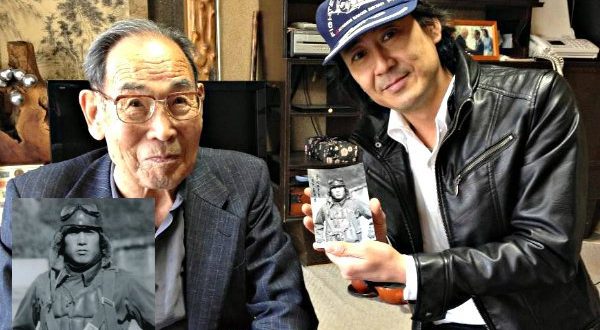Kaname Harada, a former Japanese fighter pilot and anti-war activist, died Tuesday in Nagano due to multiple organ failure, his family said. He was 99.
Believed to be the last pilot of the deadly Japanese Zero fighter planes, Kaname Harada was one of 36 Zero pilots who participated in the bombing raid on Darwin on February 19, 1942. Only four were shot down.
He had earlier participated in the 1941 attack on Pearl Harbor, after joining the Japanese Navy aged 17 in 1933.
Among the Japanese, Kaname Harada was considered a flying ace, and is thought to have downed at least nine, possibly as many as 18, allied aircraft in dogfights.
“He was the last Zero fighter pilot that we know of from the Darwin raid,” said military historian Tom Lewis, who interviewed Kaname Harada in Japan last year.
The fighting career of Kaname Harada ended in 1942 when he was shot down over Guadalcanal in a dogfight with an American pilot.
His plane flipped upside down and although he survived, he was seriously injured and contracted malaria.
From war pilot to pacifist
Though the war was to end, Kaname Harada could never forget what he had seen.
Japanese Zeros were used in strafing and to defend bomber aircraft from attack from other planes.
In the 1960s Kaname Harada became deeply depressed at his part in World War II, Dr Lewis said.
“He was proud of being a fighter pilot … at the same time he said that he had been haunted by the faces of those he had seen as he shot at them and brought them down,” he said.
Kaname Harada’s wife told her husband that because he had taken lives, he should try to give something back to humanity.
He started up a kindergarten, which he paid for himself and ran the facility.
Kaname Harada breaks his silence
Kaname Harada told Japanese news website NHK Online that when he saw the Gulf War in 1991 he felt moved to break his silence about World War II and tell people about his experiences.
“I heard that when young people saw the same scenes, they said they were like fireworks, entertaining to watch,” he told NHK.
“I thought that was seriously wrong.”
In a bid to promote peace he travelled to the United Kingdom and America and met with the pilots he once considered his enemy.
Hundreds came to his lectures where he spoke for hours, even though he was aged late into his 90s.
Dr Lewis said that most Australian soldiers from World War II he had interviewed simply wanted to forgive Japan’s actions, although about 10 per cent could not forgive what they went through.
“I was proud to meet him,” Dr Lewis said of his time with Kaname Harada.
Kaname Harada himself said peace did not happen naturally.
“I want young people to protect this peace, so that it will continue,” he told NHK.
Agencies/Canadajournal
 Canada Journal – News of the World Articles and videos to bring you the biggest Canadian news stories from across the country every day
Canada Journal – News of the World Articles and videos to bring you the biggest Canadian news stories from across the country every day



